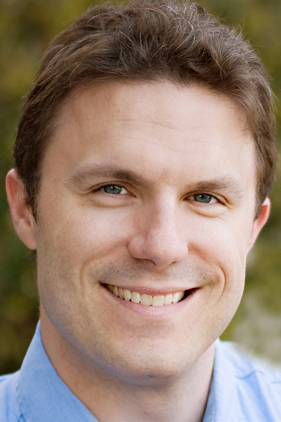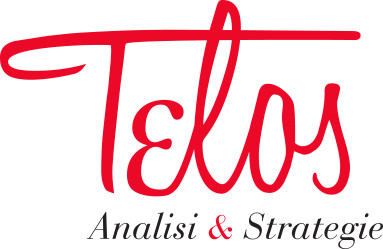January 2017, Year IX, no. 1
Jason Brennan
Hobbit, hooligans and vulcans. A fictional democracy
“Epistocracy tries to “fix” democracy by reducing the power of uninformed voters. The idea here is to keep power spread out widely, not just concentrated in the hands of a few experts, but nevertheless weigh the votes of ignorant and misinformed less.”
Telos: ‘Goodbye Democracy - Welcome Epistocracy’. Does this sentence summarise your proposed solution to a different form of government?
Jason Brennan: Democracy spreads out power widely. But this causes a problem. Since individual votes make no difference, each individual voter can afford to remain ignorant or to indulge irrational and biased political beliefs.
It’s not that voters are stupid. Rather, the incentives are bad. As an analogy, imagine that a university professor had a large class of 2,000 students. Suppose he tells them, “Three months from now, we will have a final exam. You won’t receive your own grade; rather, I will average everyone’s scores together, and you will each receive the same grade.” The average grade would be an Fx or F. Students would have no incentive to learn. So it goes with democracy.
Democracy is the rule of the people, but most of people have no clue what they are doing. Ever two years, the American National Election Studies examine what basic knowledge American citizens have. In general, these studies find that the top 25% of voters are well-informed, the middle 50% are ignorant, and the bottom 25% are misinformed (that is, they do worse than chance on multiple choice exams). Non-voters do even worse. Note that these studies only examine basic knowledge - such as who the president is or what the unemployment rate is. When we examine what voters know about the social sciences, we find they are even worse.
This matters because political decisions are high stakes. To win power, politicians have to push policies which appeal to voters. But if voters were well-informed, they would advocate different policies than they in fact do. For instance, Trump’s anti-immigration, anti-trade agenda appeals primarily to uninformed voters, while in general high informed
citizens reject these policies. In short, bad voters leads to bad government which leads to bad results.
Epistocracy tries to “fix” democracy by reducing the power of uninformed voters. The idea here is to keep power spread out widely, not just concentrated in the hands of a few experts, but nevertheless weigh the votes of ignorant and misinformed less. For instance, an epistocracy might give people who pass a test of basic political knowledge extra votes, or it might make the right to vote condition on being able to pass a test of basic knowledge, or it might allow a panel of economic experts to veto bad legislation.
To many, this seems inherently evil: don’t people have a natural right to an equal vote? But, as I show in my book, the philosophical arguments for democracy are surprisingly flimsy. We have been trained since a young age to believe democracy is just as an end in itself. I think that’s a mistake. Democracy is a tool; nothing more. It’s a method for picking policies. If we can find a better tool, one that works better, we should feel free to use it.
Competent voters for competent governments is another extremely interesting perspective of your theory. Aren’t today’s governments competent? If so, what should be done to overturn this situation?
The idea behind epistocracy is not that the well-informed have the right to rule, but instead that the innocent have a right not to be ruled by the incompetent.
Consider an analogy: suppose there is a murder trail. Suppose we have a panel of nine judges. Suppose three of the judges completely ignore the facts of the case, and decide the defendant is guilty on the basis of a coin flip. Suppose three pay attention to the facts, which seem to indicate the defendant is innocent, but decide to find the defendant guilty because they dislike her. Suppose the last three find her guilty because they believe in some bizarre, irrational conspiracy theory. In this case, we would think the judges acted wrongly, and that their decision should not be enforced. They owe the defendant, and society at large whom they represent, to decide competently and in good faith.
This reasoning applies just as strongly to the electorate and to everyone else in government. In general, when you wield power over others, you have a duty to act competently and in good faith. But in democracy, most voters (not just a minority, but most) act incompetently. Most do not know even the most basic facts relevant to the election or the referenda, and they lack the social scientific knowledge needed to evaluate those facts. For instance, in the Brexit vote, “leave” voters dramatically overestimated the percent of EU immigrants in the UK, overestimated the amount of money the UK sends to the EU, and underestimate the amount of foreign investment that comes from the EU.
The good news is that while voters are mostly incompetent, bureaucracies, politicians, judges, and others in government have at least some autonomy, and can often act independently or in defiance of voters’ wishes. Sometimes they use their independence for good; sometimes not.
The way you classify voters is quite stunning. You call them Hobbits, Hooligans, and Vulcans. What are these?
In the Lord of the Rings, Hobbits don’t care much about the outside world. They just want to smoke their pipes, garden, and eat. The political analogue is a citizen who does not care much about politics, has few political opinions, knows little about politics, and does not participate. Roughly half of American citizens - in particular, the typical non-voter - are Hobbits.
Football/soccer hooligans know a great deal about their sport, but are tribalistic and biased. For them, being a fan of their team forms part of their identity. They tend to hate fans of other teams. The political analogue would be a citizen who has a firm ideology, who hates people with other ideologies, who knows a great deal, but is highly biased and only reads news that confirms her pre-existing beliefs. The typical voter in the US is a Hooligan.
In Star Trek, Vulcans are hyper-rational, scientific thinkers. The political analogue would be a citizen who knows a great deal, but has no loyalty to his ideology, and is willing to change his mind when new evidence comes in. Hardly anyone is like that. That’s a problem for democracy because many theories of how democracy is supposed to work presume that people act like Vulcans, when in fact all we have are Hobbits and Hooligans.
Approaches similar to yours are often accused of being elitist. How do you reply?
It’s also “elitist” to say that plumbers know more about plumbing than others. Yet no one is offended to hear that.
No one would think me an elitist for saying that I know more about economics than my five-year-old son Keaton. Yet Keaton is smarter about economics than the American voting public as a whole. After all, Keaton is completely ignorant and agnostic, having no opinions at all. Yet the American public endorses the discredited economic theory called mercantilism, which was refuted hundreds of years ago. Keaton is ignorant, while they are worse than ignorant.
The voting public in most countries would need to be much better informed before the charge of elitism sounded like a real criticism.
Marco Sonsini
Editorial
Is the word populist an insult or a compliment? It depends on what you mean by populism. If you think that a populist movement gives a voice to the marginalised and the weak, well then populism is a good thing. If instead by populism you mean a group of misinformed individuals pushing governments to implement counterproductive policies, then perhaps it isn't a compliment at all.
This is the opinion of Jason Brennan, author of the book Against Democracy, and this year's Telos A&S's first interview. Democracy is a prickly, albeit extremely topical subject. Brennan maintains we are tempted to view populist movements as taking back power and rebelling against corrupt and incompetent leaders. But this gives the movements more credit than they deserve because, as he goes on to say, most are made up of uninformed voters.
He tells us that the routine surveys performed by the American National Election Studies (that produces high quality data from its own surveys on voting, public opinion, and political participation) show that most voters are uninformed voters (happily nothing similar exists in Italy!). The ANES claims that American voters barely know who the President is, cannot estimate what the unemployment rate is (for example), do not know how much money is spent by government and in which programmes, or what it did last year. One third of Americans think that the verse in the Acts of the Apostles made famous by Karl Marx - 'from each according to his ability, to each according to his needs' - is enshrined in the American constitution.
The same percentage cannot name the three branches of the U.S Government, and an even smaller percentage knows the names of their representatives in Washington. However, Prof. Brennan emphasises that citizens are anything but stupid, they just don't care. They can afford to be ignorant, or indulge in false and irrational political beliefs. In fact, understanding how to vote well and whether or not a government deserves to be kicked out is very demanding and requires tremendous knowledge.
We need to know: 1) who has been in power; 2) what real power could that person wield; 3) what were the possible political options and the options open to government, and 4) what the likely effects of different policies would have been. Brennan offers an alternative to democracy: epistocracy. It's not a novel idea and has important forefathers, from Plato to Mills. But the term was actually coined in 2008 by David Estlund, a political philosopher at Brown. When Brennan talks and writes he uses what I believe could be defined as a boxer's style since blow by blow he demolishes weak logic and pietistic statements.
He divides voters into groups, and maintains that the right to vote should be restricted to those with knowledge. But how would epistocracy work in practice? Understandably, Brennan doesn't go into detail. But he does throw a stone or rather a mountain into the pond and creates endless ripples, almost a tsunami. Whether or not populist is an insult or not is still unclear, but one thing is certain: in 2017 (and even previously) calling someone or something elitist definitely is. Perhaps foolishly...
Mariella Palazzolo

Jason Brennan is Robert J. and Elizabeth Flanagan Family Chair and Provost's Distinguished Associate Professor of Strategy, Economics, Ethics, and Public Policy at the McDonough School of Business at Georgetown University. He writes about democratic theory, the ethics of voting, competence and power, freedom, and the moral foundations of commercial society. He has been called by the Wall Street Journal "one of the world's leading academic experts on voting and political knowledge". He is known for advocating "bleeding-heart libertarianism" a political philosophy that combines the libertarian emphasis on economic and civil liberties with an emphasis on social justice. He is the author of Against Democracy (Princeton University Press, 2016), Markets without Limits, with Peter Jaworski (Routledge Press, 2015), CoLibertarianism: What Everyone Needs to Know (Oxford University Press, 2012), The Ethics of Voting (Princeton University Press, 2011), and, with David Schmidtz, A Brief History of Liberty (Wiley-Blackwell, 2010). Brennan grew up in Tewksbury, MA, and Hudson, NH. He attended Case Western Reserve University and the University of New Hampshire as an undergraduate. He earned his Ph.D. in philosophy at the University of Arizona under the direction of David Schmidtz. From 2006-2011, he was a research fellow in political science, and then Assistant Professor of Philosophy, at Brown University.
He is currently writing Global Justice as Global Freedom, with Bas van der Vossen, under contract with Oxford University Press, as well as Cracks in the Ivory Tower: The Bad Business Ethics of Higher Ed, with Phil Magness, also under contract with Oxford University Press. He is co-editor, along with David Schmidtz and Bas Van der Vossen, of the forthcoming Routledge Handbook of Libertarianism.
Jason is married, has two sons, and lives in the Washington, DC suburbs.
Marco Sonsini







SocialTelos